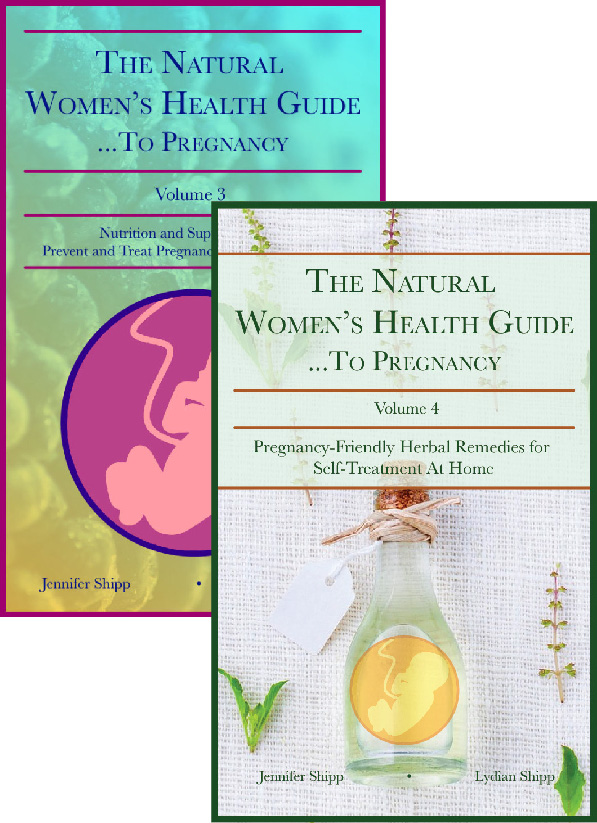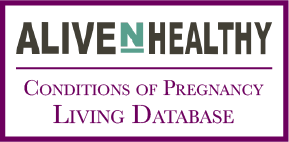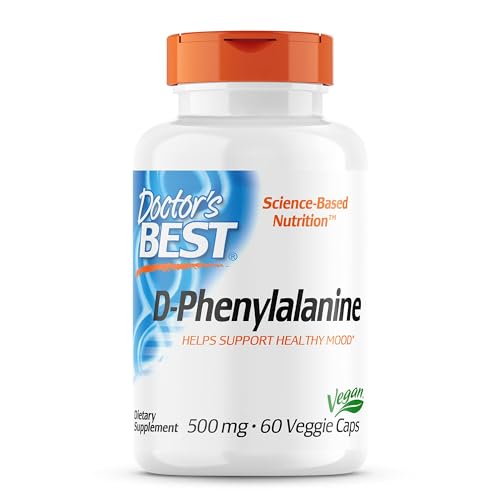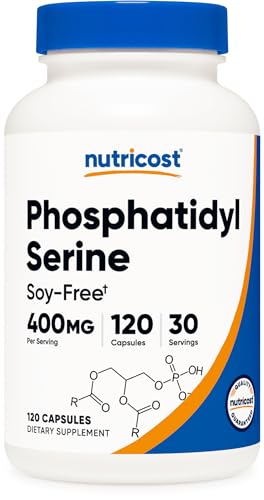 Why does protein matter during pregnancy?
Why does protein matter during pregnancy?
Proteins and amino acids (the building blocks of proteins) are extremely important during all phases of a person’s life, but pregnant and breastfeeding women have to pay extra special attention to their protein intake to ensure that they’re getting adequate amounts of the right proteins. Before we talk about amino acids in regard to pregnancy specifically, let’s look at a basic overview of the most important amino acids, how they work, and why they’re necessary for overall health.
There are 3 categories of amino acids: essential, conditionally essential, and nonessential. Essential amino acids are those that we must get from the foods that we eat; our bodies don’t manufacture these on their own. Conditionally essential amino acids are those that we have to consume via food during pregnancy or at other times in our lives when our nutrient needs are higher. Nonessential amino acids are those that our bodies can (and usually do) manufacture on their own. These can also be consumed in food, and may in fact need to be consumed in food for a while if a person is also treating another nutritional deficiency that directly affects their body’s ability/lack of ability to actually produce these nonessential amino acids.

"The Natural Women's Health Guide... to Pregnancy - BUY HERE!"
The essential amino acids are:
- Histidine
- Isoleucine
- Leucine
- Lysine
- Methionine
- Phenylalanine
- Threonine
- Tryptophan
- Valine
The conditionally essential amino acids are:
- Arginine
- Cysteine
- Glutamine
- Glycine
- Proline
- Tyrosine
The nonessential amino acids are:
- Alanine
- Asparagine
- Aspartic acid / Aspartate
- Glutamic acid / Glutamate
- Serine
During pregnancy, it’s vital to get a dietary dose of all of the essential amino acids every day. These are the main amino acids that your body will use to produce all of the other proteins in your body and your growing baby’s body. Some conditionally essential amino acids are also worth a closer look, since indeed, pregnancy is a “condition” that can make some of these amino acids essential.
The Essential Amino Acids
Below is a brief discussion of each of the essential amino acids, and their specific roles during pregnancy. As long as you eat high quality sources of protein, such as eggs, lentils, nuts and seeds, and free-range/grass-fed meats, you’ll likely get plenty of these in your diet. Nevertheless, there are certain essential amino acid supplements that you can take and use medicinally during pregnancy, if needed, and we’ve noted these below. Unless otherwise specified, women who are pregnant generally shouldn’t take supplements containing only one specific essential amino acid. You can, however, take a well-rounded amino acid supplement containing at least all of the essential amino acids if you wish.Histidine
Histidine plays a role in cerebral and nervous system development in the fetus during pregnancy. Specifically, histidine deficiency in the mother may affect the cerebral cortex and hippocampus of the fetus. As evidence of this, mothers who have a rare condition known as histidinemia, where they can’t metabolize histidine normally, are more likely to have children with neurological abnormalities (these are usually minor, but still relevant).Isoleucine
Isoleucine is a pigmented amino acid responsible for carrying the oxygen inside of red blood cells. It also may support the production of hemoglobin, and plays a role in blood sugar regulation. For women who are pregnant, this would mean that isoleucine plays a vital role in preventing anemia (a very common issue during pregnancy) as well as perhaps preventing blood sugar issues and conditions like gestational diabetes.Leucine
Leucine has been studied specifically in regard to its role in preventing and treating intrauterine growth restriction (IUGR). While women who are pregnant should ideally incorporate all of the amino acids into their diet, studies have shown that in rats fed protein deficient diets, leucine was one of the main amino acids responsible for reversing at least some of the negative effects of this general protein deficit, including IUGR. It may also support the development of fetal liver, pancreatic, and adipose tissues.Leucine has also been observed to improve overall amino acid metabolism and transfer of amino acids from mother to fetus via the placenta. One study observed that leucine supplementation in animals greatly improved the accumulation of amino acids in the placenta, and that it helped improve the transport of fatty acids and glucose through the placenta as well.
Lysine
Lysine requirements are higher in later pregnancy than they are during early pregnancy. Because of this, incorporating lysine-rich foods into your diet during the last month or two of gestation may be wise. Foods rich in lysine include legumes (like beans and lentils), free-range chicken, eggs, avocado, dried apricot, and quinoa.Lysine supplements can be used to safely treat cold sores during pregnancy. Though supplementation with this amino acid shouldn’t be continuous, taking a dose of 1000mg daily when you begin to feel a cold sore starting until after the cold sore risk/breakout has passed may be valuable in managing this health issue.
Methionine
Methionine is a sulfur-containing amino acid, like cysteine and taurine, and helps supply the body with this essential major mineral (sulfur) in addition to performing its primary role as an amino acid. Note that glycine and serine are two other amino acids that are both necessary for the metabolism of methionine, so deficiencies in either of these two otherwise conditionally essential/nonessential amino acids may lead to a methionine deficiency. On the flipside, excess methionine levels may ultimately deplete glycine. This is an excellent example of why it’s important to consume amino acids in proportionally balanced quantities via dietary sources as much as possible (with some exceptions).Methionine may be especially important in early pregnancy, since embryonic and amniotic fluids during these early stages tend to show higher levels of this amino acid than at other times during pregnancy. It may help prevent neural tube defects, since studies have shown that low methionine consumption during pregnancy ultimately results in women having a higher risk of giving birth to a baby with these defects. Notably, methionine levels in the amniotic fluids of fetuses with neural tube defects also tend to be lower than in fetuses without neural tube defects.
SAM-e, an amino acid that contains methionine, is a safe treatment for depression and anxiety during pregnancy. Read more about treatments for depression during pregnancy at this link.
Phenylalanine
Phenylalanine is the first amino acid in a pathway that leads to the production of tyrosine, and ultimately to dopamine, norepinephrine, and epinephrine. Because it is intimately connected to the production of these neurotransmitters, phenylalanine plays an important role in mood regulation.Studies suggest that phenylalanine requirements are up to 40% higher during late pregnancy than in early pregnancy. Phenylalanine requirements still increase during early pregnancy as well, in contrast with certain other amino acids like lysine, which are needed in comparable amounts both before and during the early stages of pregnancy.
Since phenylalanine is a precursor to the neurotransmitters dopamine, epinephrine, and norepinephrine, it can be taken as a treatment for depression, anxiety, addiction, and mental health problems during pregnancy. For this purpose, phenylalanine supplements should be taken at a total dose of 1000-6000mg per day (in divided doses) separately from food. Start with the lower dose and work your way up over the course of a few days; if you notice positive results with a lower dose, you don’t necessarily need to continue increasing the dosage.
Threonine
The body’s threonine intake requirements increase by up to 55% by late pregnancy, a substantial increase when compared with other amino acid intake requirements. Threonine may play a role in facilitating a woman’s transition from pregnancy to breastfeeding, as deficient or excess amounts of this amino acid have been shown to specifically alter changes that occur in progesterone and prolactin levels at this time. Adequate threonine levels also support healthy maternal and fetal weight gain and amino acid absorption in general.Tryptophan
Tryptophan has been shown to be present in higher levels in the mother’s body during early pregnancy, and to gradually decrease throughout the course of the pregnancy. Tryptophan levels in the infant are also especially high in the first 24 hours after birth, and decrease to normal levels by day 7 of life.Tryptophan supports the production of melatonin and serotonin. If you’re having trouble sleeping, or if your mood is poor during the daytime hours, tryptophan supplements may help you rebalance both your mood and sleep cycles. Given that tryptophan is a precursor for serotonin and melatonin, this amino acid can help prevent depression both during and after pregnancy for many women. Ultimately, tryptophan is also essential for fetal development and for uterine contractions during labor.
Take up to 1000mg of tryptophan at night right before sleeping on an as-needed basis, or if you’re struggling with mood issues or addiction during pregnancy, take this amount nightly as part of a complete nutritional treatment protocol (in addition to your regular prenatal nutrient supplements). Read more about tryptophan in terms of its use as a treatment for addiction, depression, anxiety, and other mental health problems at this link.
Valine
Valine is required for energy production and muscle growth and development. During pregnancy, valine is absorbed in the largest quantities by the fetus in comparison with all of the other essential amino acids, and the plasma concentrations of this amino acid are generally higher in fetuses than in healthy, breastfed infants.Conditionally Essential Amino Acids
Arginine
Read our detailed article about arginine as a treatment/preventative therapy for recurrent miscarriage, intrauterine growth restriction, and preeclampsia at this link.Cysteine
Cysteine is a sulfur-containing amino acid, and is thus related to other sulfur-based amino acids like methionine, taurine, and serine. Sulfur deficiency is a major problem in many areas of the world, including the US; amino acids like cysteine are the main dietary source of sulfur for most people, so cysteine and other sulfur-containing amino acids not only are important in their role as proteins, but also as carriers of the major mineral sulfur. N-acetylcysteine (NAC) is the most common supplemental form of cysteine available, and can be used safely during pregnancy to treat and prevent a wide range of health problems.Cysteine has been shown to potentially reduce uterine contractions during pregnancy, and thus may be a treatment option for recurrent or threatened miscarriage. NAC has also been shown to be a treatment for recurrent miscarriage. Maternal supplementation with cysteine may also help prevent the development of hypertension in offspring whose mothers experienced chronic kidney disease during pregnancy.
Women who follow a vegan or vegetarian diet are more likely to become deficient in cysteine since this amino acid is found in the highest quantities in animal-based proteins. Cysteine should be taken as part of your daily supplementation protocol at a dose of 500mg/day. NAC can be used medicinally in addition to this base dose of cysteine should the need arise.
Glutamine
Glutamine, like arginine, is essential for fetal growth, survival, and development. It also modifies gene expression, antioxidant response, and cell signaling pathways and helps boost the immune system. Glutamine is a key player in the regulation of metabolic functions. Based on some animal studies, this amino acid may be valuable in preventing spontaneous abortion and other pregnancy-related risks caused by the presence of a viral infection. Glutamine is also essential for fetal carbon and nitrogen metabolism, and is present in high concentrations in both fetal and maternal plasma.The relevance of glutamine during pregnancy is well-illustrated by its effects in treating fetal growth restriction in cases of maternal alcohol exposure. Studies done on sheep indicate that, following maternal alcohol exposure, fetuses were smaller and amino acids of all kinds were less bioavailable via placental fluids. Glutamine supplementation reversed these effects. In this context, glutamine was shown to help increase fetal weight in fetuses with fetal growth restriction, in addition to increasing the bioavailability of different amino acids (specifically glycine, arginine, and asparagine) to the fetus.
 NOW Supplements, L-Glutamine 500 mg, Nitrogen Transporter*, Amino Acid, 120 Veg Capsules
NOW Supplements, L-Glutamine 500 mg, Nitrogen Transporter*, Amino Acid, 120 Veg Capsules
Glycine
Glycine may support proper fetal cardiovascular development, in addition to decreasing maternal blood pressure levels when hypertension is caused by a protein deficient diet. In animal studies, glycine supplementation has been shown to improve both maternal and fetal vascular health and may protect the fetus from the effects of restricted uterine blood supply and blood flow. Increased glycine intake is correlated with decreased homocysteine levels, so glycine may exert its protective influence on cardiovascular health through this relationship.In both the mother and the fetus, glycine is an essential component of collagen, heme, nucleic acids, and creatine. Fetal requirements for glycine are also unusually high throughout pregnancy since glycine is a vital part of many important proteins in the fetus’ body.
Glycine is especially important during the last few months of pregnancy, and glycine levels (along with serine levels) increase in plasma along with increased intake of these amino acids during midgestation, perhaps in preparation for the body’s increased needs in late pregnancy. During late pregnancy, inadequate glycine intake has been shown to directly affect the body’s ability to synthesize all proteins; this only happens during later pregnancy, however, and lower glycine intake in early and middle pregnancy doesn’t cause the same issues.
Proline
Proline is an important amino acid for regulation of gene expression, protein synthesis, and blood vessel growth and development. During pregnancy, it works with arginine, glutamine, and leucine to increase protein synthesis and cell proliferation in the placenta, and helps improve levels of certain other amino acids like arginine, aspartic acid, and tryptophan in the amniotic fluids and plasma. Proline may play an important role in preventing early pregnancy loss, as some studies indicate that short-term supplementation with this amino acid in animals increases litter size and birth weight.Proline appears to have a unique effect on balancing the gastrointestinal microbiome. Bacteria types and concentrations in the colon change significantly during pregnancy, with certain bacteria like Prevotella spp., Clostridium spp., and Staphylococcus spp. bacterias increasing in quantity over the course of pregnancy. Proline can reduce and/or manage colonies of these bacteria in the colon to help prevent infection or bacterial overgrowth during pregnancy. On a similar topic, this amino acid has also been observed to have a healing effect on mucosal tissues and may also promote the synthesis of mucin, a glycoprotein that makes up mucus. The health of mucosal linings in the body, like those in the colon, play a role in nutrient absorption and disease prevention, so this is another indicator of proline’s relevance in maintaining health during pregnancy.
Tyrosine
Tyrosine is an extremely important amino acid during pregnancy (and beyond). Read about this amino acid and its role during pregnancy in more detail in this article.Nonessential Amino Acids
Alanine
Alanine may work with glutamine to directly improve fetal survival, growth, and development in cases where these are negatively affected by infection. This amino acid is required in order for the body to break down tryptophan and vitamin B6 into their usable parts, and specifically helps the body to use glucose effectively for energy. As a preventative for hypoglycemia and blood sugar regulator, alanine supplements have previously been used in the prevention and treatment of diabetes, including gestational diabetes (read more about other gestational diabetes treatments here).Asparagine
Asparagine is an important amino acid for fetal brain growth and development. One animal study on rats observed that pups whose mothers were fed asparagine-deficient diets had lower levels of protein and cholesterol in the brain stem. This resulted in smaller-than-average brain cell size and less membrane in the brain stem cells of these pups. Decreased myelination in the brain may be caused by this. Diminished learning ability and behavioral deficits were observed in the pups whose mothers were deficient in asparagine. This amino acid is thus extremely important during both pregnancy and lactation, times when the baby is specifically developing his/her brain and nervous system at a rapid rate.In fact, asparagine may actually be relevant in terms of cell proliferation throughout all of the fetal tissues, as some research suggests that asparagine-deficient diets may cause decreased protein and DNA synthesis in tissues and organs undergoing rapid cell proliferation (hyperplasia). Decreased fertility may also be a result of asparagine deficiency, since studies have shown that asparagine deficient rats are much more likely to give birth to smaller litter sizes with pups who have a decreased body weight at birth.
Asparagine can be synthesized in the body through a series of reactions involving the other amino acids glutamate, aspartate, and glutamine (note that all of these can also be synthesized in the body, since they’re either conditionally essential or nonessential amino acids). It can also be consumed in foods. Some of the richest food sources of asparagine include asparagus (of course), potatoes, legumes (like beans and lentils), nuts and seeds, whole grains, soy, eggs, poultry, fish and other seafoods, beef, and dairy products.
Aspartic Acid / Aspartate
There are 2 types of aspartic acid: L-aspartic acid and D-aspartic acid. The L-aspartic acid form plays a role in protein synthesis and antibody production in the immune system, while the D-aspartic acid form is found in the pituitary gland (and in the testes in males), where it is partially responsible for the synthesis and release of testosterone and luteinizing hormone. D-aspartic acid is also found in the thyroid, adrenals, and pineal glands. Because of its intimate role in pituitary gland function and the production of sexual hormones, D-aspartic acid especially has a unique role in pregnancy.A lack of aspartic acid, D-aspartic acid in particular, may make it difficult for a woman to conceive. Luteinizing hormone stimulates estrogen production and is the main hormone that directs a woman’s ovaries to release an egg each month during the menstrual cycle. Without luteinizing hormone, a woman won’t ovulate, and therefore won’t be able to conceive. Thus, low levels of aspartic acid may negatively affect luteinizing hormone production, and thereby potentially inhibit ovulation and lower a woman’s fertility.
 Nutricost D-Aspartic Acid (DAA) Capsules 3000mg Per Serving (180 Capsules) - Non-GMO
Nutricost D-Aspartic Acid (DAA) Capsules 3000mg Per Serving (180 Capsules) - Non-GMO
Glutamic Acid / Glutamate
Glutamate is an important amino acid for mental health, though it’s also essential for general nerve function. This amino acid plays a major role in learning, memory, and communication between the brain cells, as well as in the regulation of circadian rhythms (a topic that we discuss in more depth in regard to pregnancy here). Glutamate receptors in the brain (and beyond) receive glutamate as a neurotransmitter that can send signals to help you focus, fall asleep at night, stay alert during the day, and to feel mentally refreshed. Without enough glutamate, a person may struggle with insomnia, fatigue, or difficulty concentrating or remembering things. Glutamate is also a precursor to GABA, another important neurotransmitter responsible largely for feelings of mental, emotional, and physical relaxation.Glutamic acid also plays a crucial role in pH homeostasis (the regulation of the acid-alkaline balance in the body), protein synthesis, and the production of nucleotides like DNA and RNA. It performs these roles together with glutamine, another amino acid that we discussed earlier. During pregnancy, the fetus produces glutamate by breaking down glutamine in the fetal liver. This glutamate is then transported to the placenta, where it’s converted back to glutamine. Both glutamate and glutamine are essential not only for fetal growth and development, but also for placental function during pregnancy.
 Swanson Amino Acid Glutamic Acid 500 Milligrams 60 Veg Capsules
Swanson Amino Acid Glutamic Acid 500 Milligrams 60 Veg Capsules
Read more about other treatment options for depression during pregnancy and postpartum depression in this article.
Foods that naturally contain glutamic acid/glutamate (to be clear, this is not the same as monosodium glutamate, an unhealthy food additive to be avoided at all costs) include most nuts, turkey, tomatoes, mushrooms, cheeses like parmesan and Roquefort, soy products, and peas, among others.
Serine
Serine is a precursor to glycine and cysteine in humans, and is also required in order for the body to produce tryptophan. It is a signaling molecule in the brain and central nervous system, as well as in the kidneys, bone cartilage, and the corpus cavernosum in the penis. Serine also is vital for muscle formation, immune system function, DNA and RNA synthesis (in both the mother and fetus during pregnancy), protein synthesis, and intracellular metabolism.Though serine exists in other areas of the body, one of its primary functions lies in maintaining the health and functionality of the central nervous system. To demonstrate this function, multiple studies have shown that supplements with phosphatidylserine, a component of brain neurons, can be valuable in the treatment of conditions like dementia, depression, schizophrenia, and other forms of cognitive dysfunction. Low serine levels may also contribute to chronic fatigue syndrome in some people. Other research suggests that supplementation with L-serine can also help reduce blood glucose levels and body weight, and may be therapeutic/preventative for type 1 diabetes and insulitis (it may also, therefore, be valuable in the treatment of gestational diabetes).
During pregnancy, research shows that glycine and serine levels both increase around midgestation; also worth noting is that increased serine levels are directly connected to an increased intake of glycine. Some studies show that serine might be converted to glycine in the placenta, where it can then be transferred to the fetus. Serine and glycine thus share some similar roles during pregnancy and are important for similar reasons.
Research also indicates that serine supplementation can increase birth weight and litter size in pigs. Serine supplementation in the postpartum period also contributed to greater weight gain in the piglets.
Foods rich in serine include eggs, most nuts and some seeds, lentils and other legumes, poultry, grass-fed beef, sweet potatoes, soybeans, seaweed, and organic, grass-fed dairy products. In certain parts of Japan, serine is consumed via food sources in quantities of up to 8 grams per day, while the average American eats only 2.5 grams per day. Studies have shown that serine supplements pose little to no health risk when taken even at extremely high doses of up to 400mg/kg of body weight daily (which is a very high dose). Most serine supplements contain 500mg of serine in a dose.
BONUS: Theanine
Theanine is an amino acid that doesn’t fall into the 3 main categories above (there are more of these, since there’s ultimately a very long list of amino acids that can and are constructed from the basic amino acids discussed previously). I’ve included theanine here as an honorable mention of sorts because of its therapeutic effects in the treatment of depression, anxiety, and addiction. Theanine is found naturally in green tea, and promotes feelings of peace and relaxation. It is a helpful additional treatment option especially for women who may struggle with breaking a nicotine addiction or other types of addiction during pregnancy. Take up to 200mg per day on an as-needed basis. Click here to subscribe to the Living Database!
Click here to subscribe to the Living Database!
Resources:
Bertin Rojas, Denise, et. al. (2012). Effect of histidine administration to female rats during pregnancy and lactation on enzymes activity of phosphoryltransfer network in cerebral cortex and hippocampus of the offspring. Retrieved March 28, 2023 from: https://pubmed.ncbi.nlm.nih.gov/22638695/
N.A (2021). Isoleucine. Retrieved March 28, 2023 from: https://healthlibrary.brighamandwomens.org/conditions/pregnancy/19,Isoleucine
Fullin Resende Teodoro, Gabriela, et. al. (2012). Leucine is Essential for Attenuating Fetal Growth Restriction Caused by a Protein-Restricted Diet in Rats. Retrieved March 28, 2023 from: https://academic.oup.com/jn/article/142/5/924/4743477
Cui, Chang, et. al. (2021). Leucine supplementation during late gestation globally altered placental metabolism and nutrient transport via modulation of the PI3K/AKT/mTOR signaling pathway. Retrieved March 28, 2023 from: https://assets.researchsquare.com/files/rs-695499/v1/fb6e3a70-fd5d-4f9d-b6a2-6f27d33061ab.pdf?c=1631886183
Payne, Magdalene, et. al. (2018). Lysine Requirements of Healthy Pregnant Women are Higher During Late Stages of Gestation Compared to Early Gestation. Retrieved March 28, 2023 from: https://pubmed.ncbi.nlm.nih.gov/29378056/
Rees, William C., et. al. (2006). Sulfur Amino Acid Metabolism in Pregnancy: The Impact of Methionine in the Maternal Diet. Retrieved March 28, 2023 from: https://academic.oup.com/jn/article/136/6/1701S/4664462
Ennis, Madeline A., et. al. (2020). Dietary phenylalanine requirements during early and late gestation in healthy pregnant women. Retrieved March 28, 2023 from: https://www.ncbi.nlm.nih.gov/pmc/articles/PMC6997087/
Shi, M., et. al. (2018). Effects of deficiency and surplus dietary threonine on reproductive performance of primiparous pregnant gilts. Retrieved March 28, 2023 from: https://pubmed.ncbi.nlm.nih.gov/29327380/#:~:text=Deficient%20or%20ST%20threonine%20intake,transition%20from%20pregnancy%20to%20lactation.
Badawy, Abdulla A.B. (2015). Tryptophan metabolism, disposition and utilization in pregnancy. Retrieved March 28, 2023 from: https://www.ncbi.nlm.nih.gov/pmc/articles/PMC4626867/#:~:text=The%20essential%20amino%20acid%20L,Trp%20is%20depleted%20in%20pregnancy.
Van den Akker, Chris H.P., et. al. (2011). Amino Acid Metabolism in the Human Fetus at Term: Leucine, Valine, and Methionine Kinetics. Retrieved March 28, 2023 from: https://www.nature.com/articles/pr20111081
Elango, Rajavel, et. al. (2016). Protein and Amino Acid Requirements During Pregnancy. Retrieved March 28, 2023 from: https://academic.oup.com/advances/article/7/4/839S/4568693
Rasmussen, Betina F., et. al. (2021). Glycine, a Dispensable Amino Acid, is Conditionally Indispensable in Late Stages of Human Pregnancy. Retrieved March 29, 2023 from: https://www.sciencedirect.com/science/article/pii/S0022316622000372?via%3Dihub
Bourdon, Aurélie, et. al. (2020). Maternal supplementation with citrulline or arginine during gestation impacts fetal amino acid availability in a model of intrauterine growth restriction. Retrieved March 29, 2023 from: https://hal.inrae.fr/hal-03204472/document
Goto, Eita (2021). Effects of prenatal oral L-arginine on birth outcomes: a meta-analysis. Retrieved March 29, 2023 from: https://www.nature.com/articles/s41598-021-02182-6
Wu, Guoyao, et. al. (2013). Impacts of arginine nutrition on embryonic and fetal development in mammals. Retrieved March 29, 2023 from: https://link.springer.com/article/10.1007/s00726-013-1515-z
Wu, Xin, et. al. (2015). Glutamate-glutamine cycle and exchange in the placenta-fetus unit during late pregnancy. Retrieved March 29. 2023 from: https://pubmed.ncbi.nlm.nih.gov/25399054/#:~:text=Glutamine%20plays%20a%20central%20role,in%20human%20and%20other%20mammals.
Sawant, Onkar B., et. al. (2015). Maternal L-glutamine supplementation prevents prenatal alcohol exposure-induced fetal growth restriction in ovine model. Retrieved March 29, 2023 from: https://pubmed.ncbi.nlm.nih.gov/25740606/
Liu, Ning, et. al. (2019). Maternal L-proline supplementation enhances fetal survival, placental development, and nutrient transport in mice. Retrieved March 29, 2023 from: https://pubmed.ncbi.nlm.nih.gov/30418498/#:~:text=Collectively%2C%20our%20results%20indicate%20a,%2C%20angiogenesis%2C%20and%20protein%20synthesis.
Ji, Yujiao, et. al. (2018). Dietary proline supplementation alters colonic luminal microbiota and bacterial metabolite composition between days 45 and 70 of pregnancy in Huanjiang mini-pigs. Retrieved March 29, 2023 from: https://jasbsci.biomedcentral.com/articles/10.1186/s40104-018-0233-5
Santana, C., et. al. (1994). Tyrosine ingestion during rat pregnancy alters postnatal development of dopaminergic neurons in offspring. Retrieved March 29, 2023 from: https://pubmed.ncbi.nlm.nih.gov/8173984/
Newburg, David S., et. al. (1979). A Requirement for Dietary Asparagine in Pregnant Rats. Retrieved March 30, 2023 from: https://academic.oup.com/jn/article-abstract/109/12/2190/4770685
Newburg, David S., et. al. (1976). Dietary asparagine and brain development. Retrieved March 30, 2023 from: https://open.bu.edu/handle/2144/38302
Wikipedia (2022). Asparagine. Retrieved March 30, 2023 from: https://en.wikipedia.org/wiki/Asparagine
N.A. (2021). Alanine. Retrieved March 30, 2023 from: https://healthlibrary.brighamandwomens.org/conditions/pregnancy/19,Alanine#:~:text=You%20should%20not%20take%20high,should%20not%20use%20alanine%20supplements
Zoppi, Lois (2021). What is Aspartic Acid? Retrieved April 12, 2023 from: https://www.news-medical.net/health/What-is-Aspartic-Acid.aspx
Alvarez-Cardona, Fernanda, et. al. (2021). L-Arginine, Aspartate and Glutamate and their relationship with the ewes’ reproduction. Review. Retrieved April 12, 2023 from: https://www.scielo.org.mx/scielo.php?pid=S2448-61322019000100229&script=sci_arttext&tlng=en
Cleveland Clinic (2022). Glutamate. Retrieved April 12, 2023 from: https://my.clevelandclinic.org/health/articles/22839-glutamate
McIntyre, Kirsty R., et. al. (2020). Human placental uptake of glutamine and glutamate is reduced in fetal growth restriction. Retrieved April 13, 2023 from: https://www.nature.com/articles/s41598-020-72930-7
McEwen, A.C., et. al. (2021). Glutamate levels in the medial prefrontal cortex of healthy pregnant women compared to non-pregnant controls. Retrieved April 13, 2023 from: https://pubmed.ncbi.nlm.nih.gov/34419762/
Wikipedia (2023). Serine. Retrieved April 13, 2023 from: https://en.wikipedia.org/wiki/Serine
Ruggeri, Christine (2019). L-Serine: An Amino Acid Critical for Brain Health. Retrieved April 13, 2023 from: https://draxe.com/nutrition/l-serine-benefits/
Rasmussen, Betina F., et. al. (2021). Glycine, a Dispensable Amino Acid, is Conditionally Indispensable in Late Stages of Human Pregnancy. Retrieved April 13, 2023 from: https://academic.oup.com/jn/article/151/2/361/5906644?login=false
He, Liugin, et. al. (2020). Maternal serine supply from late pregnancy to lactation improves offspring performance through modulation of metabolic pathways. Retrieved April 13, 2023 from: https://pubs.rsc.org/en/content/articlelanding/2020/fo/d0fo01594f
Wikipedia (2023). Cysteine. Retrieved April 13, 2023 from: https://en.wikipedia.org/wiki/Cysteine
Sidhu, Reena, et. al. (2008). L-Cysteine and Sodium Hydrosulphide Inhibit Spontaneous Contractility in Isolated Pregnant Rat Uterine Strips in vitro. Retrieved April 13, 2023 from: https://onlinelibrary.wiley.com/doi/abs/10.1111/j.1600-0773.2001.880407.x
Hsu, Chien-Ning, et. al. (2022). Dietary Supplementation with Cysteine during Pregnancy Rescues Maternal Chronic Kidney Disease-Induced Hypertension in Male Rat Offspring: The Impact of Hydrogen Sulfide and Microbiota-Derived Tryptophan Metabolites. Retrieved April 13, 2023 from: https://www.mdpi.com/2076-3921/11/3/483

 The Conditions of Pregnancy Living Database, BETA Release - NOW AVAILABLE! Click here to learn more...
The Conditions of Pregnancy Living Database, BETA Release - NOW AVAILABLE! Click here to learn more... Solgar L-Lysine 1000 mg, 250 Tablets - Enhanced Absorption and Assimilation - Promotes Integrity of Skin and Lips - Collagen Support - Amino Acids - Non-GMO, Vegan, Gluten Free - 250 Servings
Solgar L-Lysine 1000 mg, 250 Tablets - Enhanced Absorption and Assimilation - Promotes Integrity of Skin and Lips - Collagen Support - Amino Acids - Non-GMO, Vegan, Gluten Free - 250 Servings
 Doctor's Best D-Phenylalanine, Supports Mood, Nervous System, Non-GMO, Vegan, Gluten Free, 500 mg, 60 Veggie Caps
Doctor's Best D-Phenylalanine, Supports Mood, Nervous System, Non-GMO, Vegan, Gluten Free, 500 mg, 60 Veggie Caps
 L Tryptophan 1500mg Capsules | 240 Count | Nighttime Formula | Non-GMO, Gluten Free Supplement | by Horbaach
L Tryptophan 1500mg Capsules | 240 Count | Nighttime Formula | Non-GMO, Gluten Free Supplement | by Horbaach
 Solgar L-Cysteine 500 mg, 90 Vegetable Capsules - Free Form Amino Acid - Keratin Support for Skin, Hair & Nails - Glutathione Support - Vegan, Gluten Free, Dairy Free, Kosher - 90 Servings
Solgar L-Cysteine 500 mg, 90 Vegetable Capsules - Free Form Amino Acid - Keratin Support for Skin, Hair & Nails - Glutathione Support - Vegan, Gluten Free, Dairy Free, Kosher - 90 Servings
 Nutricost Phosphatidylserine 400mg, 120 Capsules - Soy Free, 30 Servings, Vegetarian Friendly, Non-GMO, Gluten Free
Nutricost Phosphatidylserine 400mg, 120 Capsules - Soy Free, 30 Servings, Vegetarian Friendly, Non-GMO, Gluten Free
 L-Theanine Supplement 200mg, 120 Capsules (Soy Free, Gluten Free, Non-GMO, Third Party Tested) Synergy with Magnesium L-Threonate and Apigenin by Double Wood
L-Theanine Supplement 200mg, 120 Capsules (Soy Free, Gluten Free, Non-GMO, Third Party Tested) Synergy with Magnesium L-Threonate and Apigenin by Double Wood








